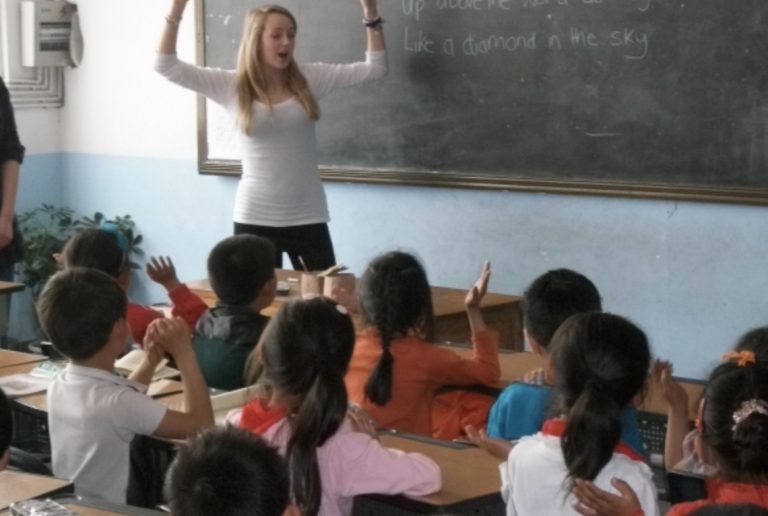Out of all of the school variables “it is teachers who have the greatest effect on student learning” (Lingard, 2005, p. 174). A good teacher therefore is paramount to the success of students but how can we evaluate a teacher? What are the indicators that show they are doing a good job?
Story Stages
Recognising a good teacher from the outset
A good ESL teacher is fundamentally a good teacher. A good teacher cultivates positive relationships with all class members as they recognise that learning is relational (Otero & Chambers-Otero, 2000). Often students need their teachers to care about them before they care about school, so a good teacher should spend time getting to know their students and showing them that they are important members of the class. A good teacher sets high expectations because students live up or down to teacher expectations and setting high expectations inspires students to achieve.
Additionally, It has become increasingly important to pay attention to the abilities and knowledge of a teacher, rather than their diplomas, in order to detect whether they are good or not. The era of the internet has brought replica high school transcript makers, and fake teaching certificates into existence, making it harder to identify an authentic one from a fake one. But teachers can be better judged by their body language, energy levels, and passion for their work. This is a more reliable indicator that a teacher is highly qualified and capable of handling any kind of situation in the classroom, which makes it essential to observe those characteristics in teachers over looking at their fake diplomas
Watching a good teacher
- Good teachers are organised, they are prepared for the lessons they will teach, this includes having a thorough subject knowledge so that they can intelligently field any questions asked of them. They have a clear plan of how the lesson will run and have the materials needed on hand in the required amounts.
- Good teachers know that whatever they model will be implicitly taught to students. By appearing prepared and ready they know that they are teaching the importance of these traits to their students, alongside of what they teach of the curriculum.
- A good teacher creates clear classroom routines and makes these explicit, this gives students a sense of regularity and control because they know what to expect and are mentally prepared for the days and lessons. This can be especially important for students on the autism spectrum who often find transition and change difficult.
- A good teacher effectively and efficiently manages the classroom, this includes maintaining the learning momentum, keeping students engaged and reorientating students easily and kindly if they are distracted. They never resort to using punitive punishment if students are off task or disobedient but instead at all times maintain students’ dignity.
A good ESL teacher cultivates a ‘community of learners’
A good ESL teacher knows how students acquire a language and what kind of environment is conducive to language learning. A classroom where all students sense they belong and feel responsible for each other is one which will facilitate learning an additional language. Students in this environment will feel willing to try and communicate in the new language through the authentic tasks the teacher has set and feel safe to take risks when doings so. They will feel confident because the teacher has shown an intolerance for bullying of any kind and will therefore know they will not be belittled for their mistakes. The teacher will have instead created an expectation that mistakes are a part of learning, a growth mindset, and the students will know that, as with most things in life, the more effort you put into learning something, the better at it you will be.
The good ESL teacher will ensure that every student is treated fairly, and if they do have biases, then they work hard not to let these influence their decisions. The better ESL teacher will reflexively examine their views and values and work on themselves to reduce and eliminate these biases. They will provide their students with a global education where students learn about the world’s diverse cultures, look at examining cultural differences and how cultures can also blend together. This will assist students to understand their own cultural and identity journey as they begin to learn a new language alongside of a new culture and this is because …
A good ESL teacher is more than just a language teacher
A good ESL teacher recognises that language and culture are entwined and that in teaching language they are teaching the culture that is attached to that language as well. In ESL teaching the good teacher must assist students to be able to read and assume meanings behind both verbal and non-verbal communication with English speakers as, only by doing so, will they be able to answer and respond appropriately. This includes teaching the implications of language choices, helping students understand the suitability of certain phrases and ways of speaking, understanding for example, that “Hey bruh” is appropriate in an informal gathering with friends but not, for example, a job interview.
In summary
The importance of a good teacher cannot be overemphasised, they are the most important variable in student learning (Lingard, 2005). A good teacher cultivates positive relationships with all learners, they are prepared and organised with structured routines. They keep their students engaged and interested in learning and always maintain students’ dignity. They create a classroom environment where all students feel that they belong and understand that teaching a language encompasses more than simply vocabulary and grammar.
References
Lingard, B. (2005). Socially just pedagogies in changing times. International Studies in Sociology of Education, 15(2), 165-186.
Otero, G. G., & Chambers-Otero, S. (2000). Relational learning: Towards a human ecology in 21st Century schools. Incorporated Association of Registered Teachers of Victoria.
